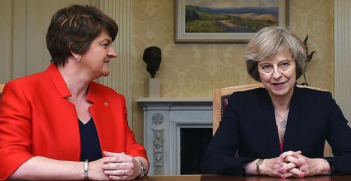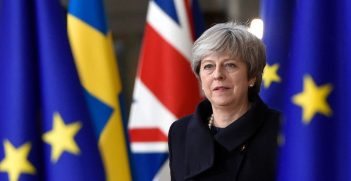Goodbye, Mr Speaker

Love him or hate him, the House of Commons retiring Speaker will be sorely missed, by the public as well as lawmakers. But he will continue to have a presence.
“Order, orr-duu-rrr!”
For many, perhaps most, observers of the daily pantomime at the House of Commons – where MPs of both sexes and all parties bay and growl at each other with unmatched, if sometimes confected, ferocity – it is a source of regret that we will no longer hear those familiar commands from the Speaker, John Bercow.
Bercow has had enough of the antics performed in Westminster’s lower house, and a coterie of MPs (mostly Tory ministers or members of the vocal right-wing faction) have had enough of him. Despite his credentials as a Tory MP for a blue-ribbon constituency, they consider him biased against them. For his part, Bercow has contempt for those MPs who behave as if they were born to rule.
So, after ten years as Speaker, John Bercow is retiring not, as the cliché so often goes, to spend more time with his family, but to utilise his extensive vocabulary and resonant vocal chords to generate many thousands of words in articles, speeches and a tell-all memoir, Unspeakable, to be published in February. The “celebrity” Speaker will become a celebrity, and already the bookings are coming in. He might also offer advice on how to chair a meeting, and there are unconfirmed rumours of a fictional TV series based on the life and times of a Speaker never afraid to rough it up with those MPs he thought were seeking to undermine the authority of Parliament.
There is little doubt that the country’s most controversial Speaker has had an impact on the institution of Parliament and changed it for the better. That was evident from the many plaudits he received at the three-hour session in the Commons earlier this month, which was his swan song. Bercow has achieved his long-held ambition to ensure backbenchers are given more influence and more opportunity in Parliament. On becoming Speaker, Bercow declared that he would “help Parliament get off its knees” and ensure that it was more than “just a rubber-stamping operation for the government of the day.”
In practical terms, Bercow has allowed MPs more time for debates of their own choosing and introduced a new system whereby any lawmaker can call on any minister to come to the dispatch box to answer an “urgent question.” His introduction of more family friendly hours has made life for women MPs somewhat easier. The historic pistol range was replaced by a children’s nursery. He eschewed wigs and breeches for lounge suits and other less antiquated, formal attire.
All these reforms have been significant, but in my opinion, they pale behind Bercow’s role in restoring the constitutional position of Parliament as the supreme authority in the Westminster system.
He clearly saw prime minister Boris Johnson’s action to have the Privy Council (of which Bercow is a member) instruct Queen Elizabeth II to prorogue Parliament for a month in September as a move that would damage the institution and stifle discussion on the government’s drift towards a no-deal Brexit. On vacation in Turkey when the move was announced in August, Bercow immediately issued a blunt statement describing the prorogation as an outrage. For him, Johnson’s repeated and very public declaration that Parliament was obstructing the will of the people who had voted for leaving the European Union was a declaration of war. As we know, the Supreme Court agreed and declared the proroguing of Parliament null and void.
Talking to The Observer last weekend, in his first interview since retirement, Bercow expressed pure joy, “It was declared illegitimate. Ultra vires. Not proper. And, crucially, void. I repeat: void. Void. Void. Invalid. It didn’t happen.”
Despite this disagreement with Johnson – and while declining to say whether he would vote for him at the coming general election, Bercow claims he gets on well with the prime minister. Certainly Johnson paid him a glowing tribute in Parliament. “Although we may disagree about some of the legislative innovations you have favoured, there is no doubt you have been a great servant of this House of Commons – you have modernised, you have widened access, you have cared for the needs of those with disabilities, and you have cared so much for the rights of backbenchers. You have done more than anyone since Stephen Hawking to stretch time in this particular session.”
Bercow got on less well with Johnson’s predecessors, Theresa May and David Cameron, particularly the latter, who strongly opposed his elevation to the role of Speaker. Bercow says May believed the government had the right to parliamentary delivery, even though it lacked a majority. Bercow famously blocked May’s third attempt to get her withdrawal agreement with the EU through the Commons by citing a convention that went back to 1604. The son of a Jewish London taxi driver, Bercow told The Observer that he thinks of Cameron as old Etonian who believed he had the right to rule.
Bercow admits he has made enemies as well as friends. It is traditional for retiring Speakers to be given a peerage, and he makes no secret of the fact he would like that, though he is not counting on it. I’d guess that if re-elected, Johnson will make the appropriate recommendation, but there will be opposition from other Tory grandees.
The key question we must now ask is, will John Bercow’s successor continue in the same mould? By a large majority MPs chose Sir Lindsay Hoyle, a long-standing Labour MP and Bercow’s deputy. He has pledged to continue to defend the rights of backbenchers but is likely to be less controversial than his ebullient predecessor, promising also to be “transparent.”
Hoyle also may have a calming influence on MPs and is less likely to chide them. Unlike his Canberra counterpart in the House of Representatives, Bercow seldom threw people out of the chamber, preferring to give them a verbal humiliation. Like this one to an MP: “Mr Lewis, get a grip of yourself man. Calm! Take up yoga; you will find it beneficial.”
Colin Chapman FAIIA is a writer, broadcaster and public speaker, who specialises in geopolitics, international economics, and global media issues. He is a former president of AIIA NSW and was appointed a fellow of the AIIA in 2017.
This article is published under a Creative Commons Licence and may be republished with attribution.





